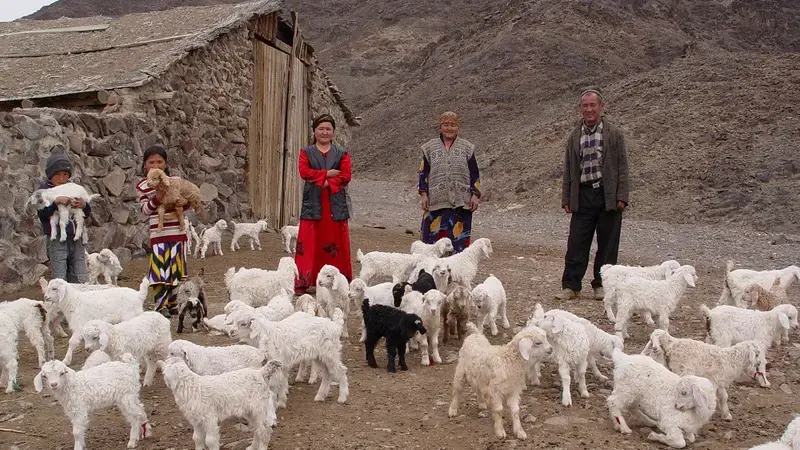Investing in agricultural research for inclusive and sustainable development

While the world is deliberating on the role of agricultural research in development, IFAD is making a point to the donor community and development sector by showcasing the impacts from its Agricultural Research for Development (AR4D) funded projects at the 39th session of its Governing Council convened in Rome, 17-18 February 2016.
“Sustainable Development Goals (SDGs) cannot be delinked from the agriculture sector, which unfortunately is one of the least financed sectors,” said H.E. Mr. Ibrahim Adam Ahmed Al-Dekhairi, Sudan’s Minister for Agriculture and Forestry, at a side-event that presented highlights from the Near East, North Africa and Europe region on ‘Linking research to development for impact’. He emphasized the need to increase investment in agricultural research for development and the promotion of an enabling environment that will transform agrarian production systems.
Mr. Perin Saint Ange, Associate Vice-President, Programme Management Department, IFAD, commended the collaborative partnership of IFAD and ICARDA, and the crucial role played by National Agriculture Research Systems (NARS). Dr. Mahmoud Solh, ICARDA’s Director General, gave a few examples of this partnership where ICARDA scientists are working with resource poor farmers, women, extension workers and policy makers and making contributions to the SDGs. NARS partners then presented three success stories to showcase the powerful impact that investments in science and innovation have made on inclusive development. These projects were funded by IFAD and other donors and implemented in collaboration with the national partners and local communities.
In a water stressed country like Egypt, research on water management to achieve higher productivity in irrigated agriculture has identified the raised-bed system as an affordable technology to rationalize water use and enhance water productivity. Through raised-bed systems farmers in Egypt have successfully achieved higher yields while ensuring savings in irrigation water diverted to the field.
“This technology was disseminated for sustainable agricultural intensification on a large scale in 22 governorates, as part of a nation-wide campaign by the Egyptian Government on self-sufficiency in wheat production,” said Mr. Samy Sabri from the Agricultural Research Center, Egypt. At the national level, in the 2015 season, in all wheat governorates the total wheat area under raised-bed was 105,000 ha. This technology is being evaluated in farmers’ fields in other countries of the region that include Morocco and Tunisia.
An innovative community-based breeding project, which included a market-driven approach to improving sheep and goats’ productivity and the establishment of a self-sustaining value chain, has linked livestock producers and rural women in Central Asia to the global yarn markets.
Emphasizing the impact of this project, Mr. Nariman Norimbayevich, ICARDA’s Project Field Coordinator in Uzbekistan said, “On average, the annual income of the Kyrgyz women increased by 2.3 times, and that of Tajik women 1.3 times. Felt products, half of which were newly introduced, earned close to US$ 50,000 for Kyrgyz women groups.” This project ended in 2013 and is now being used as a model by development organizations, such as the Aga Khan Foundation, to consolidate and replicate value chain development for greater impact in Central Asian countries.
In the rangelands of Jordan’s Badia, severe water shortage and excessive grazing have led to a major loss of biodiversity, soil erosion and land degradation. Controlling land degradation and promoting vegetation growth is crucial to reduce the pressure on rangelands and provide sources of feed for livestock that are critical to livelihoods in regional rural communities.
Mr. Mohamed-Ali Mudabbar from the National Center for Agricultural Research & Extension, Jordan, explained how research on micro-catchment rainwater harvesting techniques by ICARDA and Jordanian scientists has led to the establishment of semicircular bunds on contour ridges and furrows (using GPS laser-guided Vallerani machine) and runoff strips in two communities of Jordan Badia. “As an outcome of this research, an effective micro-catchment laser-guided system was identified for rainfall harvesting, which has led to improved water availability, increased vegetative cover and improved soil health, and provided rural communities substantial sources of feed for sheep and goats,” Mr. Mudabbar said. GIS-based land suitability analysis conducted by ICARDA team suggests that a total area of 2.7 million ha in Jordan has the potential for adoption of this package, with further prospects of scaling out on an area of 300 million ha in West Asia and North Africa (WANA) countries. IFAD is contributing to these efforts through the ‘Agriculture Resource Management Project (ARMP) II’.
These successful examples further underscored that agricultural research is a cost-effective investment for inclusive and sustainable development.
